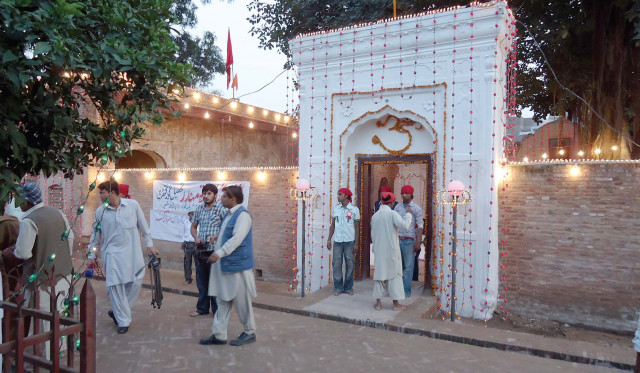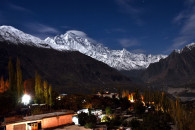No bars on access to Shri Laxmi Narain temple, orders SHC
Temple is to be retained solely as a place of worship.

No activity other than the worship should be allowed at the 200-year-old ancient Shri Laxmi Narain temple, ruled the Sindh High Court on Wednesday.
This order was issued on a petition seeking a stay against the alleged demolition of some structures at the pre-Partition temple which is located at the Native Jetty area in Karachi.
Kailash Wishram, a Hindu residing on the temple’s premises, had gone to court against the demolition of certain structures at the temple. The maharaj of the temple had earlier told The Express Tribune that the construction was being carried out by the Sindh Minister for Excise and Taxation Mukesh Chawla.
On September 14, the court ordered its nazir to inspect the site and check if any construction had taken place.
According to Wishram, access to the sea was an important part of religious rituals, but this was being denied by blocking off a staircase that leads down to the sea.
He said access to seawater was important part of their religious rituals, but the same was being denied by blocking the staircase that lands on the beach.
On Wednesday, a Sindh High Court bench headed by Justice Maqbool Baqir disposed of the petition and other pending applications with the consent of the parties.
The parties agreed that the temple should be retained solely as a worship place where devotees should not have any hindrances.
It was specifically agreed that access to the temple shall not be blocked at all, while no other activity other than worship will be carried out within the premises.
The Hindu Panchayat offered to provide funds that may be required for ongoing construction, repair or renovation of the worship place.
Published in The Express Tribune, November 2nd, 2012.



















COMMENTS
Comments are moderated and generally will be posted if they are on-topic and not abusive.
For more information, please see our Comments FAQ